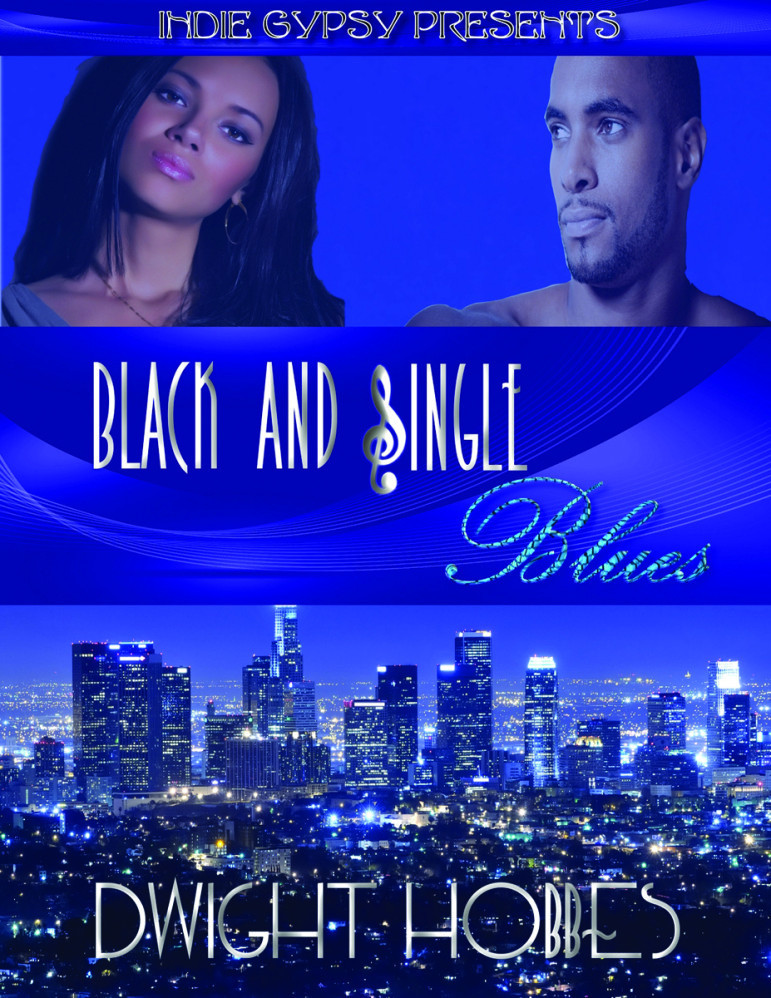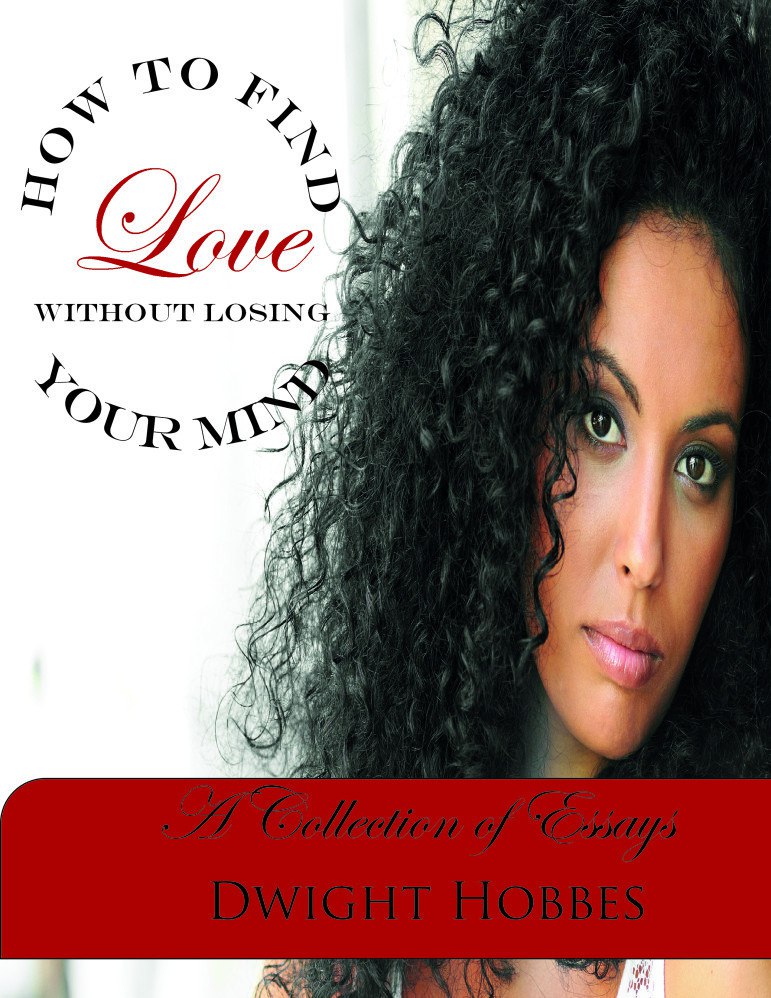Dwight Hobbes talks about his two new books
 MSR “contributing writer” Dwight Hobbes has contributed to just about every category of story the newspaper runs: news, features, reviews, profiles and opinion. Over a year ago he added a new category to his output, an ongoing fiction series in weekly installments. That story has now taken form as a novel, Black & Single Blues, to be published by Indie Gypsy this month along with another collection of his essays.
MSR “contributing writer” Dwight Hobbes has contributed to just about every category of story the newspaper runs: news, features, reviews, profiles and opinion. Over a year ago he added a new category to his output, an ongoing fiction series in weekly installments. That story has now taken form as a novel, Black & Single Blues, to be published by Indie Gypsy this month along with another collection of his essays.
One of the hardest working, most productive writers around, Dwight’s extensive credits over his long career are too many to list in detail here. Suffice it to say that he has been published in a wide range of newspapers and magazines, is a frequent guest on radio and TV shows, has produced and published several plays, and has performed and recorded his music here and in New York.
We recently completed an email interview with Dwight (DH) regarding his new publications and future projects.
MSR: Dwight, you’ve got two projects coming out simultaneously this spring, one fiction and one non-fiction. We know the novel, Black & Single Blues, actually originated with a story you published in Essence a few years ago. How did it get from there to here, considerably enlarged and expanded?
DH: Through less of my doing than you’d expect. From beginning to now, I backed into it. Marcia Ann Gillespie, when she was running Essence, saw it on an editor’s desk, rescued it from Rosemary Bray’s rejection pile, and published it. Had she looked left instead of right crossing the floor, that would’ve been that. Then, when MSR needed to succeed Sheletta Brundidge’s Down Low Brother series, you and Tracey [Williams-Dillard, MSR publisher/CEO] got the bright idea to ask if I had anything. Which worked out well with readers. Long enough to be novel length. I mentioned it in passing to Shelley Halima at Indie Gypsy Press and she jumped all over it. All along the line, other people made decisions. By the by, the second project is an essay collection called How To Find Love Without Losing Your Mind (Kindle/Amazon.com).
 MSR: You describe the second book, How to Find Love, as “a humorous collection of essays on romance.” The two books seem related insofar as both concern the ups and downs of romantic relationships. Would you say they both approach the same subject from different directions? Is one approach better than the other?
MSR: You describe the second book, How to Find Love, as “a humorous collection of essays on romance.” The two books seem related insofar as both concern the ups and downs of romantic relationships. Would you say they both approach the same subject from different directions? Is one approach better than the other?
DH: They are the same subject, y’ know? Just approached differently. One’s a novel. The other’s essays. No, neither is better. Except the novel thing always has a better shot at making some money. Which always is nice. Old Chinese proverb.
MSR: Let’s begin with the novel, Black & Single Blues, your first venture in this form. How does your experience writing a novel compare with your experience writing plays and essays? Is it easier? More difficult? Just different?
DH: It’s something I never expected to achieve. I grew up with heroes like Baldwin, Himes, Williams. And got turned on to Zora Neale and Ann Petry. But, turns out you don’t have to be profound to be legitimate. You tell a simple story well, that’s viable. Easier than essays or plays? No. In fact, for me, harder. The novels — there’s four now waiting to see the light of day — are all based on previously told stories. Shelter will be a novelization of the play. As for working from scratch? No, thanks. Too much work at an art form for which I simply don’t have those kinds of serious chops.
MSR: Author Shelley Halima makes reference to your “witty and engaging writing.” You do have a distinctive style or voice that you’ve developed over the course of a very long and productive writing career. Is that style pretty much second nature to you now? I know it’s not limited to “witty and engaging.” What more can you say about it?
DH: The distinctive style, Jerry, that’s just like any other writer. Personality, y’ know? Funny you should say limited, because, quite honestly, witty and engaging works for me. Over the years, I get better at tightening the nuts and bolts, fundamental sentence structure and good dialogue. Bottom line, witty and engaging carries the day. Rings at the cash register.
Market a book to Black women, you just made yourself a license to mint money. Ever look lately at the kind of discretionary income book-reading sistahs have at their disposal? What more I can say is that Black women are going to get a charge out of the women characters. Who all have strong backbones with sharp tongues to match. I don’t believe in drawing weepy-dreepy women who melt and fall all over a man.
MSR: The chief protagonist of Black & Single Blues, Keith Jackson, is a highly successful musician. It happens you’re a musician as well as a writer. Would it be fair to say Keith serves as an alter-ego, maybe someone you would have been had you taken a different path and your guitar licks were hotter?
DH: No. My licks is hot enough. And I sing better than he does. Keith is vicarious fun. He’s not alter. Long as you and I have known each other, man, this is just me being me. I just put my personality on it. And gave him a successful living.
MSR: The story is mostly told from a masculine point of view with several other well-developed male characters, but as you mentioned, your female characters are strong, forceful, no-nonsense women with dynamic personalities. Would you say the novel is likely to appeal more to women readers than to men?
DH: Women will find it interesting looking through the eyes of a man and listening to a man’s thoughts as he’s going through serious changes about his relationship with this woman he loves. It’s going to appeal to them just fine. Ask Shelley and Yolanda over at [publisher] Indie Gypsy. They both flipped for it. So did Patti L. Adams. Her book Blood Relatives comes up right behind mine. So, you got three strong, professional women who sign off. Same with the essays. What always made those commentaries on romance work with women readers was that they come from a man’s perspective.
MSR: In the case of How to Find Love, you offer sage advice about romantic love presumably based on your own life experience. What can you tell us about your familiarity with romantic relationships that establishes your authority on the subject? While wanting to be discrete — we don’t want to pry — but have you found love?
DH: Practical experience. I’ve been through enough relationships that haven’t worked by now to qualify as an expert on what not to do.
MSR: Where to from here? Word is you have two or three more unpublished novels laying around, another play or two in the works, and plenty more essays on life and love. What might be coming up soon you’d like the world to know about?
DH: Right now it’s all about pushing Black & Single Blues once it’s published. It’s a good, marketable product and the idea is take it to market. Get some satisfied customers.
MSR: OK, thanks for the chat, Dwight. Any final words for MSR readers in particular, where Black & Single Blues and some of those How to Find Love essays first appeared?
DH: Nah, just to say thanks is all. I don’t care how effective your writing might be. It doesn’t work without someone to read it.
For more information on Dwight’s new books, visit https://madmimi.com/p/723155/preview.
Jerry Freeman welcomes reader responses to jfreeman@spokesman-recorder.com.
